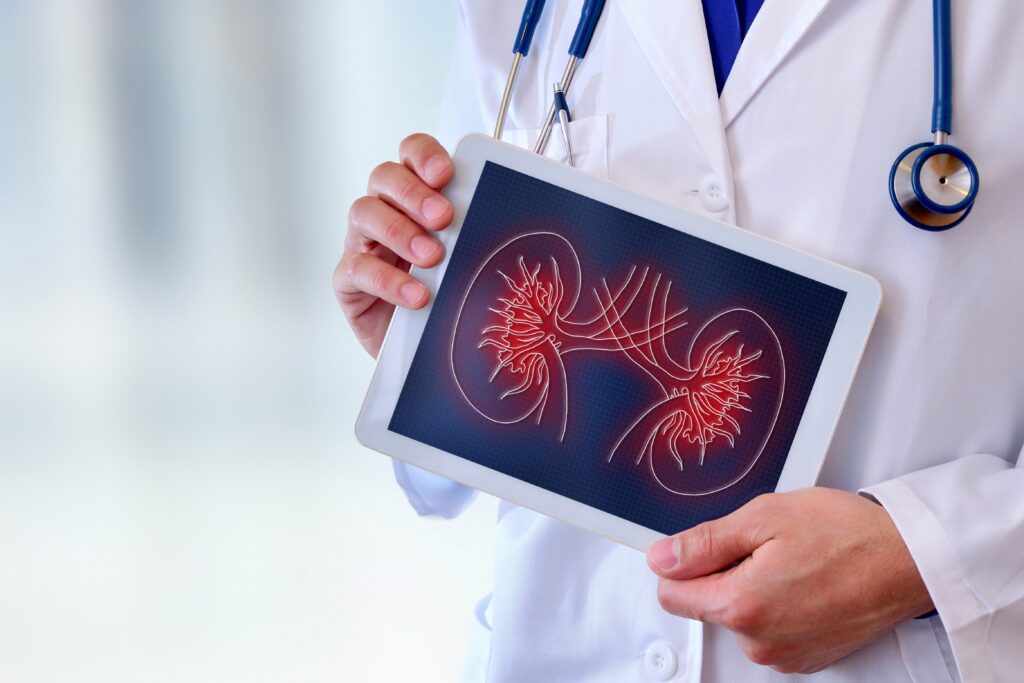What Is Polycystic Kidney Disease?

Polycystic kidney disease, or PKD, is a genetic disorder that often produces painful or even debilitating symptoms. Dr. Sadeddin and his exceptional team at Texas Advanced Renal Health will work with you to manage your condition and enhance your quality of life. We are committed to providing the exceptional kidney care you deserve!
What Is Polycystic Kidney Disease?
PKD is an inherited disease that causes numerous cysts, or fluid-filled sacs, to grow inside the kidneys. As the cysts enlarge, the kidneys also become larger, and eventually lose their ability to filter waste from the blood. PKD can also lead to cysts developing in other organs, including the liver. The progressive condition causes kidney function loss, eventually leading to kidney failure.
What Are Signs and Symptoms of Polycystic Kidney Disease?
Many people live with PKD for years before experiencing any symptoms. However, as the cysts in the kidneys start growing, symptoms begin to appear, including the following:
- Headaches
- Fatigue
- High blood pressure
- Frequent urination
- Blood in the urine
- Urinary tract infections
- Abdominal pain or tenderness
- Feeling bloated
- Pain in the side or back
- Joint pain
- Kidney stones
Having any of the above symptoms does not necessarily mean a diagnosis of polycystic kidney disease. However, they warrant an evaluation, especially if you have a family history of PKD.
What Are the Types of PKD?
There are two leading types of PKD: Autosomal dominant and autosomal recessive.
- Autosomal Dominant PKD: Sometimes called adult PKD, autosomal dominant PKD accounts for about 90 percent of cases. If one parent has this progressive genetic disorder, their child has a 50% chance of developing it. Symptoms usually appear between ages 30 and 50, but in some rare cases, PKD develops in childhood.
- Autosomal Recessive PKD: This condition is much less common than autosomal dominant PKD. It is also hereditary, but both parents must carry the gene for the disease. Autosomal recessive PKD produces symptoms during infancy, and in some cases, even before birth.
How Is Polycystic Kidney Disease Treated?
There is no cure for PKD. However, your trusted team at Texas Advanced Renal Health will help manage your symptoms and avoid complications. Controlling your blood pressure is vital to a PKD treatment plan. We may also recommend medications to slow the progression of kidney decline, antibiotics to treat UTIs, diuretics to remove excess fluids from the body, or surgery to drain cysts and relieve your discomfort.
Our kidney care team may recommend a low-sodium diet and outline a renal nutrition plan to support your kidney health. It’s also important to stay active and maintain a healthy weight.
In advanced cases of PKD, dialysis or a kidney transplant may be your best option. Dr. Sadeddin and his team are committed to providing you with the resources and support you need to continue doing the things you love.
Polycystic Kidney Disease Management Near Me in McKinney, TX
Contact Texas Advanced Renal Health to learn more about managing the symptoms of PKD and slowing its progression. Dr. Sadeddin and his team will evaluate your needs and create a personalized treatment plan to enhance your health and quality of life. Call 972-548-4833 to schedule your appointment today!
